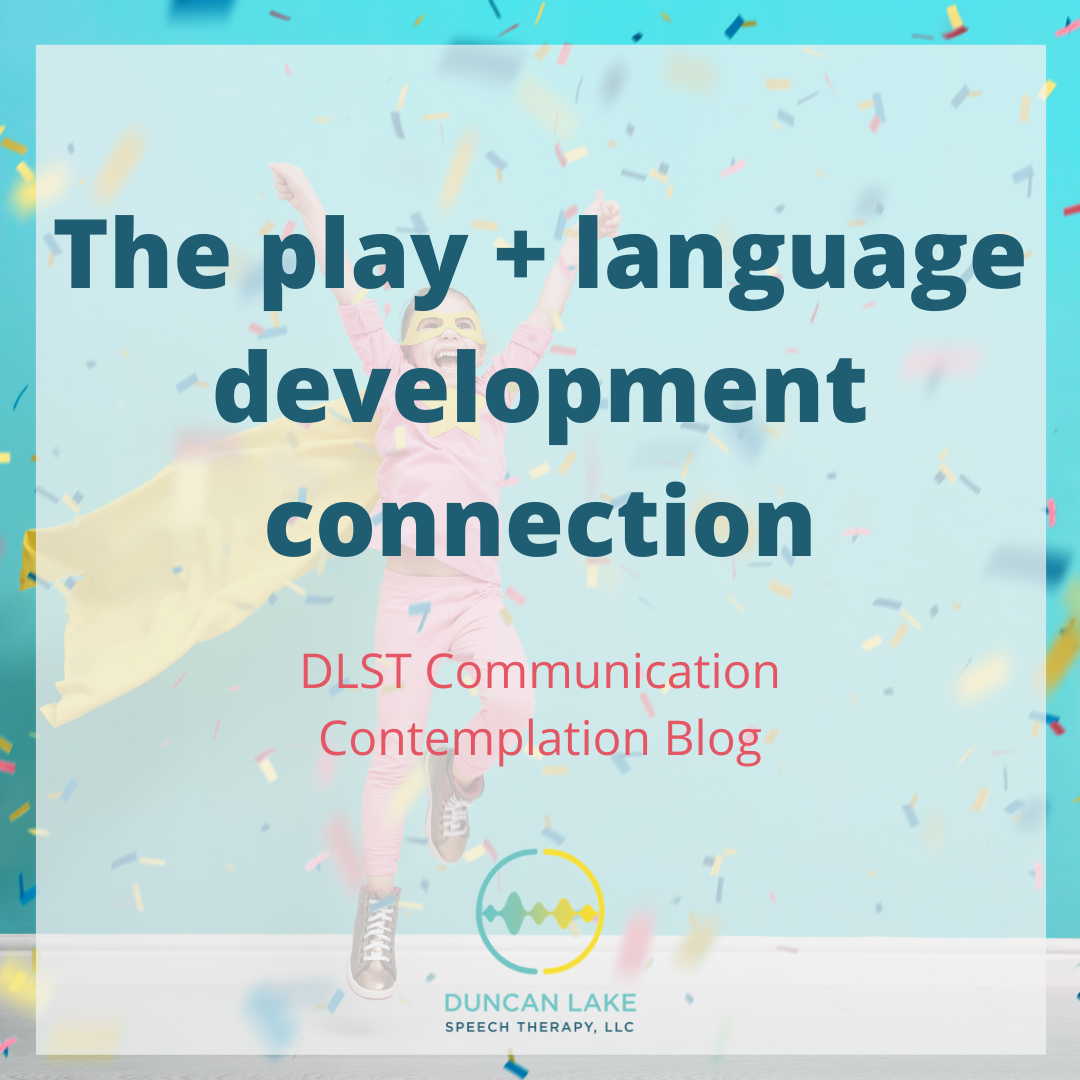
by Tami Teshima | Dec 22, 2020 | Language Development
It’s the time of the year toys and play get a lot of attention. Hey, I’m all about it! Play is such a powerful language learning tool, and, above all, is enjoyable for the children. I thought I’d take some time this week do discuss the connection...

by Tami Teshima | Dec 8, 2020 | Language Development
by Tamiko Teshima, M.A., CCC-SLP Practice Owner & Speech-Language Pathologist Duncan Lake Speech Therapy, LLC This time of year, our team is often asked for input on gift giving. Most questions are typically about what toys are best for language development. The...

by Tami Teshima | Oct 13, 2020 | Deaf and Hard of Hearing
Friends, this week we are lucky to have Caitlin Giammona, fellow SJSU alum, and speech-language pathologist and owner of The Signing SLP. Caitlin provides speech and language support to signing deaf and hard of hearing folks, and like us here at Duncan Lake Speech...

by Tami Teshima | Oct 6, 2020 | AAC
Today, we continue our Fall Language Series. Last week, we talked about language development at the apple orchard. This week, we’re taking it to the pumpkin patch, AAC style. For those of you who don’t know, AAC stands for alternative and augmentative...

by Tami Teshima | Sep 29, 2020 | Language Development
Like any red-blooded Midwesterner, I am a sucker for the fall. Call me basic, but there is something about this time of year that just makes me so happy. Maybe it’s the colors? Maybe it’s the sweaters? Whatever it is, I love it! Fall brings with it its own...







Recent Comments